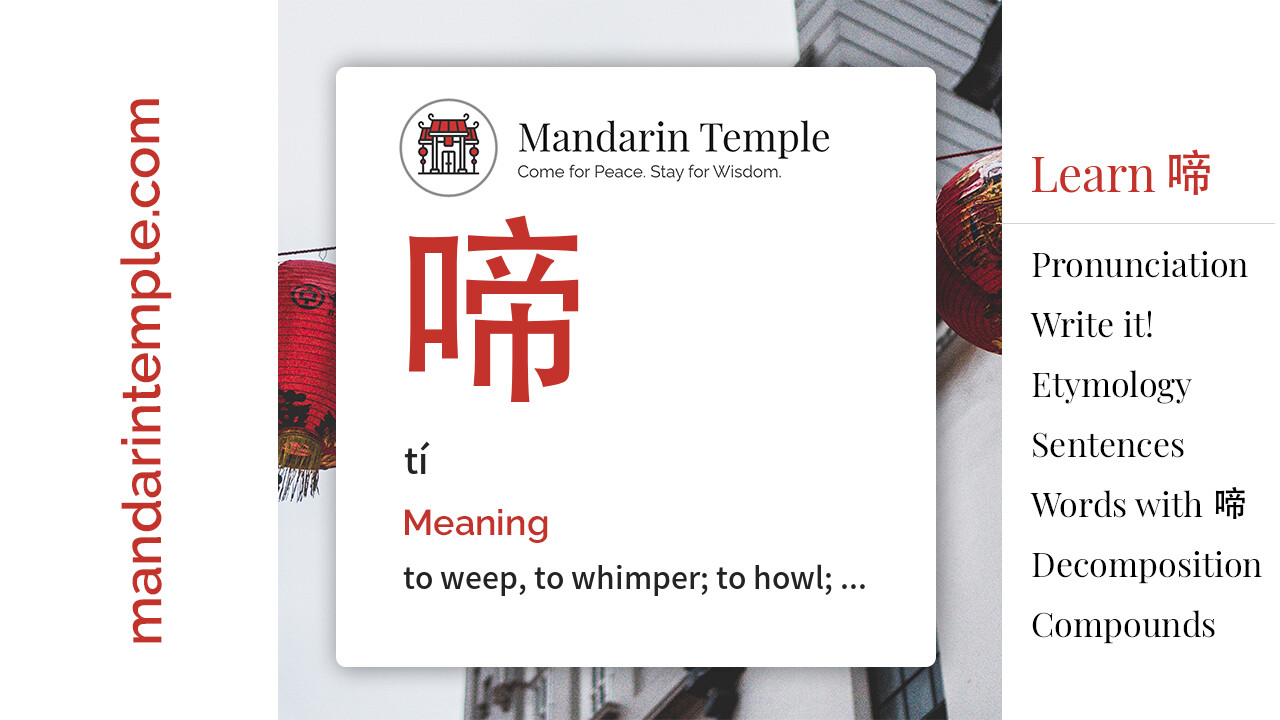Write it!
Practice your Chinese writing skills and learn precisely where and when to draw every stroke of the
Chinese word 啼 tí .
Press the Show Strokes button to see the strokes and their order and hit Start Drawing when you are
ready to practice.
To complete this step you need to write the word once.
Spread the word
“Do the difficult things while they are easy and do the great things while they are small. A journey of a thousand miles must begin with a single step.”
Lao Tzu Tweet
Example sentences using 啼 tí
Broaden your vocabulary by interacting with 5 audio-assisted sentences using the Chinese word 啼 tí in different contexts.
To complete this step you need to listen to each of the five Chinese sentences at least once. and scroll down.
婴儿 yīngér 闻到 wén dào 妈妈 māma 衣服 yīfu 的 de 味道 wèidao 就 jiù 会 huì 停止 tíng zhǐ 啼哭 tí kū .
A baby will stop crying when It'smells the scent of its mother's clothes.
Words with 啼 tí
Explore 6 words and sayings that include the Chinese character 啼 tí in their composition.
To complete this step you need to read and scroll down.
| Frequency | Simplified | Meaning | Traditional |
|---|---|---|---|
| 哭哭啼啼 kū ku tí tí | to weep endlessly | 哭哭啼啼 kū ku tí tí | |
| 啼 tí | to cry | 啼 tí | |
| 啼笑皆非 tí xiào jiē fēi | between laughter and tears | 啼笑皆非 tí xiào jiē fēi | |
| 啼哭 tí kū | to cry | 啼哭 tí kū | |
| 悲啼 bēi tí | plaintive cry | 悲啼 bēi tí | |
| 啼饥号寒 tí jī háo hán | hunger cries and cold roars (idiom); wretched poverty | 啼饑號寒 |
AMAZON BOOKSHELF
AMAZON BOOKSHELF
